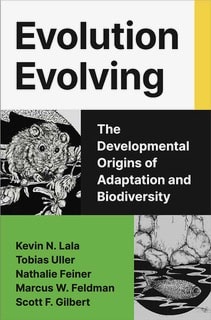Philosophy and Evolutionary Theory
It would be impossible to grasp how living beings work and evolved without the cognitive tools and methods of science. Idealizations, abstractions, and metaphors allow us to represent very complex systems in models and produce explanations.
But representations that foreground one kind of influence will tend to obscure others. This can divert attention from important factors, cause scientific controversy, and ultimately prevent us from piecing together different kinds of explanations.
We believe science will be better if we reflect on conceptual issues; read and discuss with philosophers of science; and engage with a diversity of explanatory agendas. We are particularly interested in issues that arise from work on the relationship between development and evolution, if and how it matters to evolution that organisms (but not genes) are purposeful agents, the nature of scientific explanations, and the challenges of pluralism.
You can find an introduction to some of these issues and what they mean for evolutionary biology in our book Evolution Evolving.
If you want to know more:
Lala, K., Uller, T., Feiner, N., Feldman, M.W. & Gilbert, S.F. 2024. Evolution Evolving. The Developmental Origins of Adaptation and Biodiversity. Princeton University Press, forthcoming, website
Uller, T. 2023. Agency, goal-orientation and evolutionary explanations. In P. Corning et al. (eds), Evolution ‘On Purpose’: Teleonomy in Living Systems, Vienna Series in Theoretical Biology, MIT Press, preprint
Kampourakis, K. & Uller, T. (eds). 2020. Philosophy of Science for Biologists. Cambridge University Press
Uller, T., Feiner, N., Radersma, R., Jackson, I.S.C. & Rago, A. 2020. Developmental plasticity and evolutionary explanations. Evolution & Development 22:47-55
Uller, T & Laland, K.N. (eds). 2019. Evolutionary Causation. Biological and Philosophical Reflections. MIT Press
